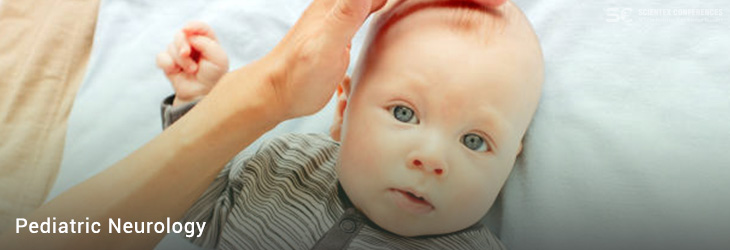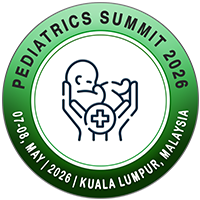Track: Pediatric Neurology

The "Pediatric Neurology" session offers an in-depth exploration of complex neurological disorders in the pediatric population, emphasizing the latest advancements in neurodiagnostic techniques and therapeutic interventions. Aimed at healthcare professionals and researchers, this session delves into the pathophysiology, clinical presentations, and management of various pediatric neurological conditions. By integrating novel neurodiagnostic modalities and state-of-the-art treatment protocols, this session aims to enhance clinical practice and optimize patient outcomes in pediatric neurology.
Epilepsy in Children:
This subsection will explore the etiology, clinical manifestations, and management strategies for pediatric epilepsy, focusing on seizure classification, diagnostic techniques, and pharmacologic and non-pharmacologic treatment options.
Neurodevelopmental Disorders:
Focusing on disorders such as Autism Spectrum Disorder (ASD) and Attention-Deficit/Hyperactivity Disorder (ADHD), this segment will discuss diagnostic criteria, early intervention strategies, and multidisciplinary approaches to management.
Neuromuscular Disorders in Pediatrics:
This segment will address the diagnosis and management of pediatric neuromuscular disorders, including muscular dystrophies and spinal muscular atrophy, emphasizing genetic testing, disease-modifying therapies, and supportive care.
Movement Disorders in Children:
Covering conditions such as dystonia, tic disorders, and cerebral palsy, this subsection will discuss the clinical presentation, diagnostic challenges, and treatment modalities, including pharmacologic and surgical interventions.
Pediatric Neuroimmunology:
This subsection will examine the pathophysiology, diagnosis, and treatment of neuroimmunological disorders in children, such as multiple sclerosis and autoimmune encephalitis, highlighting immunomodulatory therapies and long-term management strategies.
Scientific Highlights
- Neonatology and Perinatology
- Advances in Neonatal Care
- Neonatal hearing disorders
- Genetics and Genomic Medicine in Pediatrics
- Developmental and Behavioural Pediatrics
- Childhood Nutrition and Obesity
- Pediatric Allergy and Immunology
- Pediatric Pulmonology
- Pediatric Cardiology
- Pediatric Gastroenterology
- Pediatric Neurology
- Pediatric Oncology
- Pediatric Hematology
- Pediatric Rheumatology
- Pediatric Infectious Diseases
- Pediatric Nephrology & Urology
- Pediatric Dermatology
- Pediatric Surgery
- Pediatric Emergency Medicine
- Pediatric Pain Management and Palliative Care
- Mental Health in Children
- Adolescent Medicine
- Pediatric Pharmacology
- Pediatric Dentistry
- Innovations in Pediatric Health Care
- Recent Technology and Child Health


